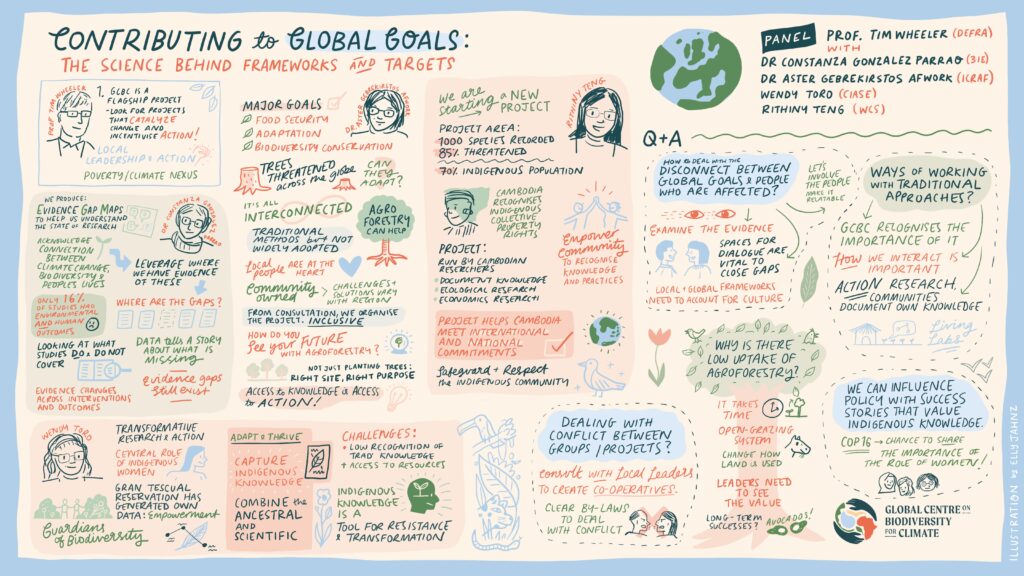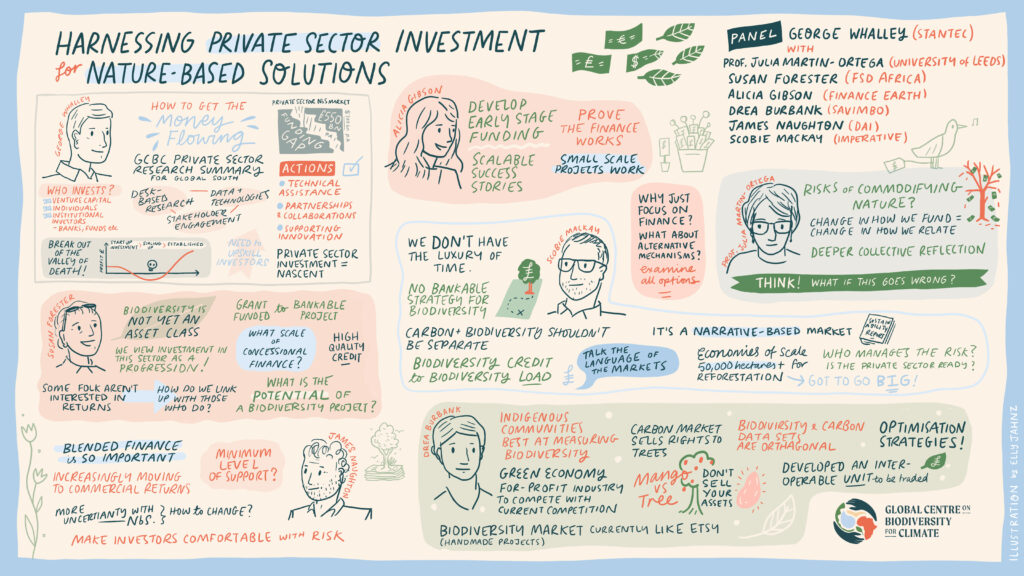Jornada de Puertas Abiertas del Simposio de Investigación GCBC 2025
Cada año, el Centro Global de Biodiversidad para el Clima organiza un simposio de investigación centrado en compartir grandes ideas, prácticas transformadoras e historias de impacto.
Este año, invitamos a toda la comunidad del GCBC a participar en el evento a través de una Jornada de Puertas Abiertas online el martes 4 de marzo de 2025.
El programa de la Jornada de Puertas Abiertas incluyó cuatro atractivas sesiones con ponentes de todo el mundo. Puedes acceder a las grabaciones de las sesiones más abajo.
Además, las principales conclusiones de cada mesa redonda han cobrado vida gracias a las ilustraciones de Elly Jahnz.
Sesión inaugural: Por qué es importante apoyar la investigación innovadora en la intersección del cambio climático, la pérdida de biodiversidad y la mitigación de la pobreza.
Mesa redonda 1: Contribuir a los objetivos globales – Explorar la ciencia que subyace a los marcos y objetivos nacionales y globales.

Mesa redonda 2: Reforzar la conexión entre las pruebas y la política con un enfoque práctico de toda la comunidad del GCBC.

Mesa redonda 3: Aprovechar la inversión del sector privado en soluciones basadas en la naturaleza.

Para más información, lee nuestro blog sobre el Simposio, escrito por Samantha Morris, en el que se analizan los principales resultados del evento completo de tres días.
Muchas gracias a todos los miembros de nuestra comunidad de investigación del GCBC que se unieron a nosotros en persona y por Internet para el simposio, y a nuestros maravillosos ponentes, panelistas y presidentes por su perspicacia, experiencia y por dedicar generosamente su tiempo a estar con nosotros.









